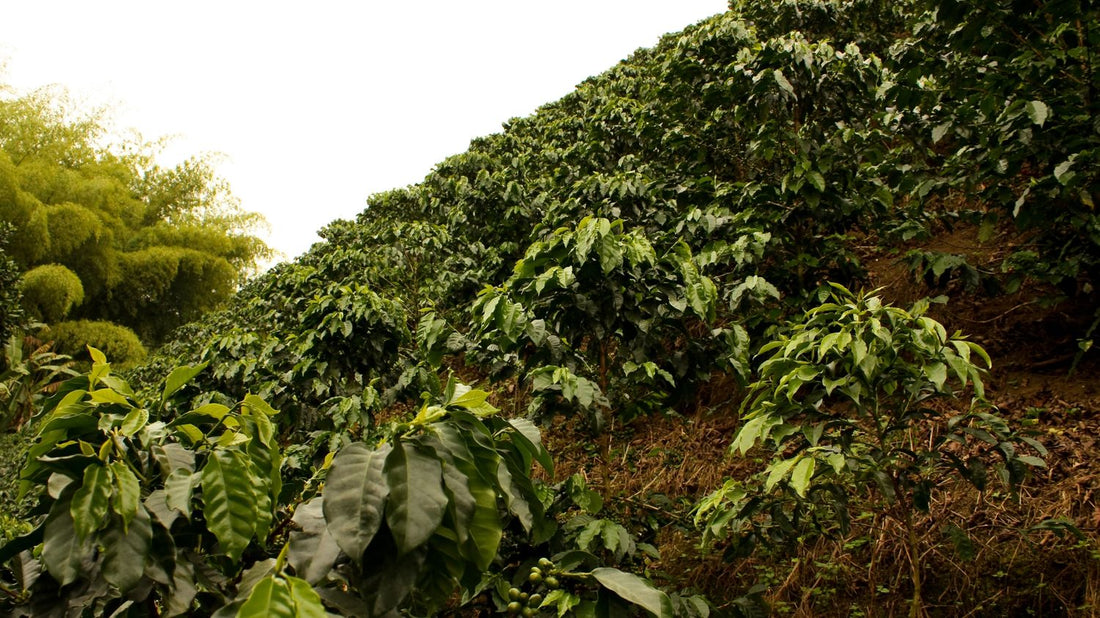
Brew-haha: A look at the coffee shortage.
Share
Did you know that there is currently a global problem that has been going on for some time? It's the coffee shortage.
I will explore the causes of the coffee shortage and its impact on the coffee industry and consumers. I will also explore potential solutions, and alternatives to coffee to help alleviate the shortage.
The causes of the coffee shortage
The global supply of coffee is declining due to a number of factors, ranging from climate change to growing demand for coffee.
The coffee shortage is the result of a number of factors, including growing demand for coffee, climate change and the rise of coffee-focused businesses. Global demand for coffee has been on the rise for some time, with coffee being one of the most popular drinks in the world. The rise of the specialty coffee market has also had an impact on the coffee shortage. Specialty coffee is a type of coffee that is grown and produced in a specific region and is of higher quality than regular coffee. As more people turn to specialty coffee, demand increases, leading to a decrease in the global supply of coffee.
At the same time, coffee production has been hampered by climate change. Rising temperatures have led to droughts and other extreme weather conditions that have destroyed coffee crops. Some plantations develop diseases that affect the coffee harvest. These situations led to a decrease in the global supply of coffee, which caused the coffee shortage.
Impact of the coffee shortage on the coffee industry
The coffee shortage has had a major impact on the coffee industry. With the world's coffee supply dwindling, coffee producers and retailers have had to find new ways to cope with the crisis. In some cases, coffee producers have had to reduce production, while retailers have had to raise prices in order to compensate for the shortage.
As the global supply of coffee becomes scarcer, producers must resort to lower quality beans to meet demand. This has led to a decline in the overall quality of coffee, and a decrease in the variety of coffee available.
Impact of the coffee shortage on consumers
The coffee shortage has also had an impact on consumers. As the global supply of coffee dwindles, it becomes increasingly difficult for consumers to find their favorite coffee. In some cases, consumers have to pay more for the same amount of coffee they previously purchased. The result is that coffee is becoming less and less affordable.
The decline in coffee quality has also had an impact on consumers that affects the taste and experience of coffee for many.
Solutions to the coffee shortage
To remedy the coffee shortage, several solutions can be implemented. One of the most promising solutions is the development of more sustainable agricultural practices. Like growing coffee in the shade, promoting biodiversity, and the use of organic fertilizers. Such practices help reduce the impact of climate change and preserve coffee resources.
Finally, developing alternatives to coffee can also help address the coffee shortage.
Alternatives to coffee to alleviate the coffee shortage.
In order to address the coffee shortage, many people are turning to coffee alternatives. Tea, for example, is becoming an increasingly popular alternative to coffee because it offers the same benefits as coffee without the high levels of caffeine. In addition, cereal coffees are interesting alternatives to coffee, if you are not gluten intolerant.
Other alternatives to coffee are offered, such as Siffleux are coffee alternatives made from roasted Quebec fruits. These infusions give the taste of coffee, without the effect of caffeine. In addition, adaptogenic plants have been added to Siffleux to provide various health benefits, for example maca root helps you have energy naturally, while astragalus is anti-stress.
To find out more about the Siffleux, I invite you to visit the website:
